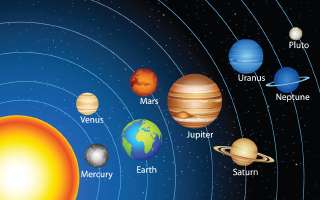54 items in this section. Displaying page 1 of 6
What is Artificial Intelligence?
If you touch a hot metal object, you will yank your hand away immediately. When this happens to you the first time, the sequence of events and the result (the burning of your hand) gets stored in your brain. This is what we call an experience. When you see a hot metal object next time, you will not touch it. You will use the knowledge of your previous experience and decide to not repeat it again....
Which Mammal lays Eggs?
Mammals are creatures who give birth to their young ones as opposed to other animals who lay eggs. Birds, reptiles and insects lay eggs. But as with every other rule, this one has exceptions* too. An exceptional exception The duck-billed platypus of Australia walks out of fresh waters to build its nest on the ground. But it has retained its love of water and returns to streams and ponds to eat crayfish, snails, and shrimp. The most remarkable feature in the platypus is that although it is a mammal, it lays eggs!...
What is Cloning?
Which is the most famous sheep in the world? A sheep called Dolly. But why is Dolly famous? That is because unlike other sheep’s, Dolly was not born in the usual manner. She is actually a carbon copy of her mother, like an identical twin. This means that she is the twin sister of her mother who is older by six years and she does not have a father! What is Cloning? [Illustration by Shinod AP] Scientists at the Roslin Institute in Edinburgh, UK, made history on 27th February 1997, when they successfully cloned a sheep....
Why do Ants walk in a Line?
When I woke up one summer morning, I noticed a string of dashes on my bedroom wall. The line ran from the ceiling to the wall behind my bed and then disappeared under it. As I watched, I saw one of the dashes move. It was a small red ant walking up the line. Soon, another one followed and then another, till it grew into an army of ants marching up the wall. I noticed that while walking in a line the ants were cleaning the wall paint underneath them and, in the process, making a path....
What is Water Harvesting?
Come summer and the entire nation seems to have just one word on its lips – water. Year 2000 saw one of the worst summers recorded in the history of India. The drought in the state of Gujarat and Rajasthan was the worst in decades. Fresh water, they say is a scarce resource. Is it? During the monsoons every year, we allow huge amounts of fresh water to run off our roads and pavements into the drains where it mixes with the sewage and heads straight for the rivers where we dump waste....
Is Potato a Fruit or Vegetable?
Pick up a potato and you notice eyes with little lashes on it. In fact, the lashes look like tiny roots. Have you ever wondered why the potato has roots on it? The potato is actually a stem. A stem in disguise, that grows under the ground! Many plants are masters at adapting themselves to their surroundings. They can change their structure to suit their needs. Farmer holding harvested dirty potatoes in his hands....
Himalayas Have a Deep Impact on the Climate of the World
Tibet is known as the roof of the world. That is because it is on a region which has the highest altitude in the world. The Himalayan mountain range merges into the Tibetan plateau to form this region known as the Himalaya-Tibetan Plateau. Besides being the roof of the world, this plateau also has a deep impact on the climate of the world, says a report published in the May, 2001, edition of Nature, a science and environment journal....
Why doesn't our stomach get digested?
All the food we eat goes into our stomach. Here, it is broken into smaller and simpler substances and get absorbed into the blood. Then, the blood carries these food particles to the different cells of the body, where they are used to provide energy to our body. Why doesn’t our stomach get digested? How is food broken into smaller particles? When we eat, the glands lining the walls of the stomach secrete a thin, strongly acidic, almost colorless liquid, called gastric juice....
What is Pluto – a Star or a Comet?
Which is the planet farthest from the sun? Pluto, of course. But, some recent findings suggest that Pluto is not a planet at all. It seems Pluto could actually be a comet, reports the National Geographic website – www.nationalgeographic.com Basically, it is Pluto’s small size that has got it into trouble. It has a diameter of approximately 1,420 miles or 2,280 kilometers. This makes it six times smaller than Earth. This fact irked scientists who always suspected that something so small could never belong to the hallowed club of planets....
How Far Away are the Stars?
The sun is a star, just like the thousands of others we see in the sky each night. But it looks so very big. Is it the biggest star? No. The only reason the sun appears so big is because it is closer to us than any other star. The sun is just 93,000,000 miles (or 14,88,000,000 km) away from the earth. That seems an awful lot of distance, but light can travel so quickly that the sun’s rays reach the earth in a little more than eight minutes!...
- ❮ Previous
- Next ❯









